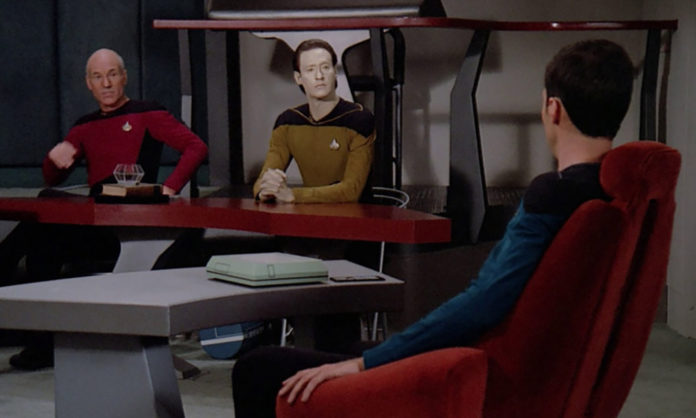A common method for building character is the tried and true interview technique. You sit down with a list of 20 or 40 or 100 questions and answer as though you were your character. Some answers come easily, some highlight important aspects you overlooked, and some might suggest interesting flaws or contradictions.
But what if that method doesn’t work for you (ed. – depending on where you look, the list of possible questions can be dull…)? In a post on Writers Helping Writers, Christina Delay suggests a fun alternative: the test of humanity in the Star Trek: Next Generation episode focused on Data.
What happens if we judge our characters on this standard, Delay asks. Do they measure up? The criteria included:
- Intelligence. “Does the being possess the ‘ability to learn, to understand, and to cope with new situations?'” Delay asks. For writers, we should ask if we’re forcing our characters to behave a certain way due to plot needs, or if they develop organically and make logical choices based on their personalities.
- Self-awareness. “When our characters do something surprising or different than we had planned, our characters become self-aware,” Delay writes. “When our characters speak in a way that is totally foreign to how we, the author, processes the world, they are self-aware.”
- Consciousness. Consciousness is “the quality or state of being aware especially of something within oneself.” Can characters achieve that state? How do you describe it? Delay doesn’t have a clean answer. Do your characters have original thoughts or do they merely follow their programming?












